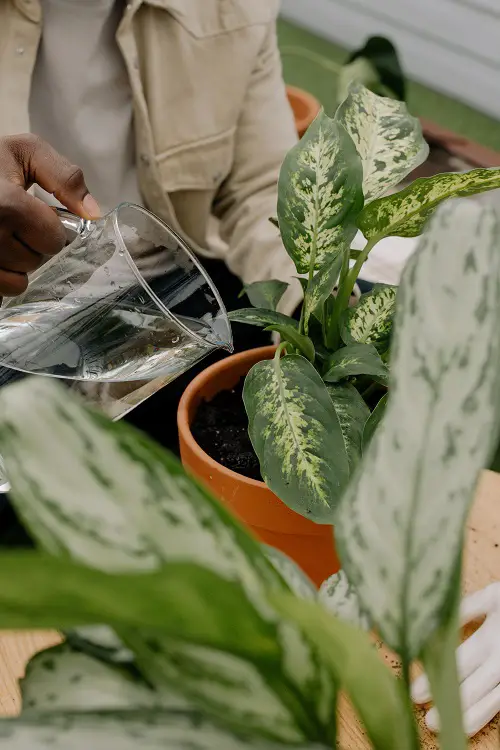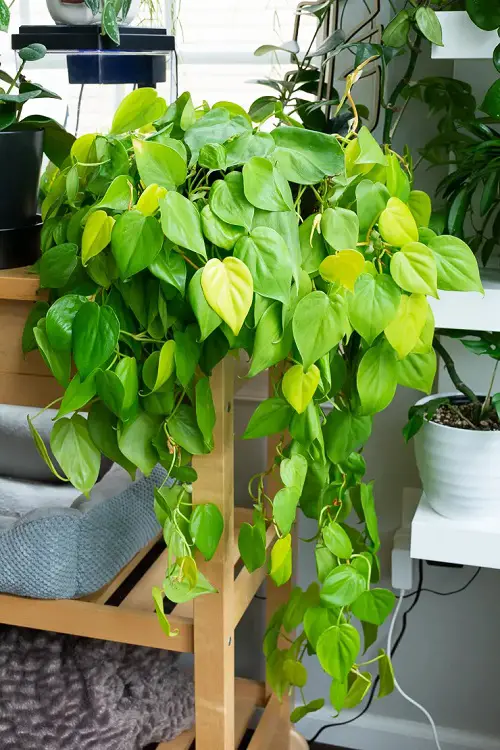Do you know about Sugar Water Uses for Plants? Well, they can boost their growth to sweet levels. How? Let’s have a look!

Are you looking to give your plants a quick and effective nutrient boost? You may have heard whispers in the gardening community about the magic of sugar water, but can it really benefit your plants? From enhancing root development to bolstering plant immunity, discover the untapped potential of this simple yet powerful concoction. Trust us; you won’t want to miss the game-changing insights that follow! Here are some amazing Sugar Water Uses for Plants!
What is Sugar Water for Plants?

Sugar water for plants is exactly what it sounds like: a solution of water and sugar. Gardeners and plant lovers use this mixture as a supplementary source of nutrients for their plants. It’s a simple and cost-effective way to provide additional sustenance to your green friends.
Why Use Sugar Water for Plants?
1. Root Development
Sugar contains glucose, a natural energy source for plants. When diluted in water, it can encourage root development by providing an extra burst of energy.
2. Microbial Activity
Sugar water can stimulate beneficial microbial activity in the soil, enhancing nutrient absorption for plants.
3. Stress Recovery
During times of stress, such as transplantation or extreme weather conditions, sugar water can offer plants a boost in energy, aiding in recovery.
In conditions like drought or salinity, sugar can function as an osmoprotectant, balancing internal water pressure and protecting cells from dehydration. The sugar molecules bind with water, reducing water loss and helping the plant endure unfavorable conditions.
Under stress, root growth can be compromised, affecting the plant’s ability to absorb water and nutrients. Sugar has been shown to encourage root development, facilitating better uptake of essential elements and thus contributing to overall plant health.
Sugars like glucose and fructose have been shown to activate the plant’s immune response, making it more resilient against pathogen attacks during periods of stress.
4. Flowering and Fruiting
Some gardeners use sugar water to encourage blooming and fruit production, as the extra energy can be redirected to these processes.
The Role of Sugar in Plant Defense Signaling
Plants, like all living organisms, have evolved mechanisms to defend themselves against various forms of stress, including pest attacks and diseases. One less-talked-about but significant player in this complex defense mechanism is sugar. Sugar doesn’t just serve as an energy source; it is actively involved in signaling pathways that trigger plant defense mechanisms.
1. Activation of Immune Responses
Sugars can function as secondary messengers that initiate immune responses. They do so by binding to specific receptors, which in turn activate other components of the defense system, such as phytohormones.
2. Induction of Gene Expression
Sugar levels in plant cells can influence the expression of genes related to defense. For instance, increased sugar concentration can upregulate the expression of genes that produce enzymes or proteins crucial for plant defense.
3. Cross-talk with Phytohormones
Sugars often work in conjunction with phytohormones like salicylic acid, jasmonic acid, and ethylene. These hormones are already well-known for their roles in plant defense.
The interaction between sugar and phytohormones enhances the plant’s ability to respond quickly and effectively to stress factors.
How to Make and Use Sugar Water for Plants

Materials Needed:
- Clean, filtered water
- Granulated sugar
- Measuring cup
- Stirring utensil
- Spray bottle (optional)
Recipe 1: Basic Sugar Water Solution
- Measure 1-2 tablespoons of granulated sugar per gallon of water.
- Mix the sugar and water thoroughly until it dissolves.
- Allow the solution to cool to room temperature.
- Use the sugar water to water your plants as you normally would.
Recipe 2: Foliar Spray
- Measure 1-2 tablespoons of granulated sugar per gallon of water.
- Dissolve sugar in the water and transfer the solution to a spray bottle.
- Lightly mist the leaves of your plants with the sugar water.
- Apply the foliar spray early in the morning or late in the evening to avoid sunburn.
Recipe 3: Soil Drench for Stress Recovery
- Dissolve 1-2 tablespoons of granulated sugar in a gallon of water.
- Use this solution to deeply water plants experiencing stress or shock.
- Ensure the soil receives a thorough soaking to help the plant recover.
Important Tips
- Moderation is Key: Avoid overusing sugar water; once every 4-6 weeks is generally sufficient.
- Water Quality: Use clean, filtered water to prevent any contaminants from affecting your plants.
- Observation: Monitor your plants’ response to sugar water; not all species may benefit equally.
Conclusion
Sugar water for plants can be a valuable tool in your gardening arsenal. Whether you’re looking to boost root development, aid in stress recovery, or encourage blooming, this simple concoction can provide your plants with the extra energy they need.
Using sugar water for plants can be beneficial in moderation, but overuse can lead to overfeeding, attracting pests like ants, and potentially disrupting the balance of nutrients in the soil. It’s crucial to apply sugar water sparingly and monitor your plants’ response to avoid these issues.




